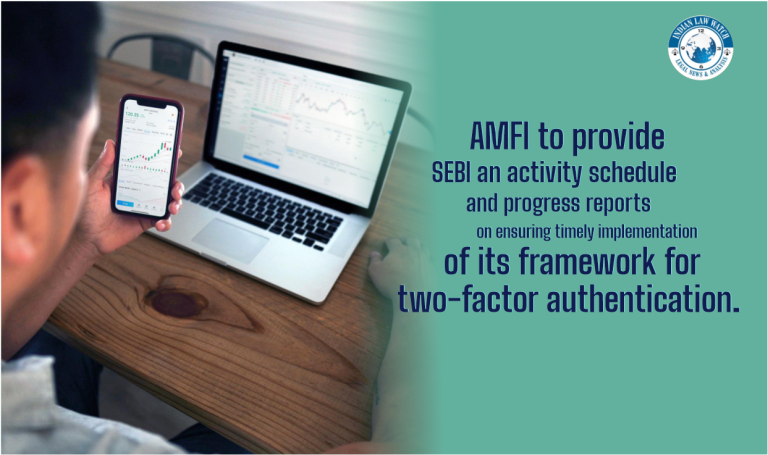

Investors who transact on such platforms currently don’t have any legal recourse if things go wrong. The regulator intends to plug that gap.
The Securities and Exchange Board of India (SEBI), the financial market regulator, has sought feedback on a proposed regulatory framework for transaction-only platforms, which allow transactions in mutual funds without the help of distributors.
The growing popularity of direct plans amid the absence of clearly defined regulations for execution-only platform (EOP) service providers makes this an important regulatory move. Here’s how it can impact you as an investor.
Need for a new framework
Execution-only services for investing in direct plans of mutual funds are in demand. While a few companies enrol themselves as registered investment advisors (RIA) and offer these services, others are registered as stock brokers. But there is a small gap. When an individual uses execution-only services – chooses to transact on his own – there is no clarity on how their interests are protected.
“For the investors who are not clients in terms of investment advisory or stock broking or portfolio management regulations, the risk associated with such transactions cannot be overlooked as the non-clients do not have any recourse or protection available under any regulatory framework. Thus, there is a need to strike balance between the convenience and investor protection,” SEBI said in its consultation paper.
What is proposed?
The regulator suggests three approaches to bring EOP entities under the regulatory framework.
Approach 1: An EOP enrolls as an intermediary with SEBI and acts on behalf of investors by signing an agreement with each investor client.
Approach 2: An EOP enters into a contract with mutual fund houses through the Association of Mutual Funds in India (AMFI) and acts as their agent.
Approach 3: An EOP acquires limited-purpose membership of the stock exchange and then signs agreements with each investor to act as their agent.
These are proposals at this stage and stakeholders are expected to get back to the regulator with their suggestions and comments by August 12, 2022.
The proposed regulations also call for adherence to cybersecurity norms and dedicated redressal mechanisms on such platforms. Depending on the approach chosen, there may be net worth requirements and other compliance norms.
“The proposed guidelines will ensure that only serious players will offer execution-only services,” said Ganesh Ram, MD of MF Utilities. “The regulatory framework is aimed at protecting investors’ interests.”
What is the impact?
Investors who transact on such platforms don’t have any legal recourse if things go wrong and the regulator intends to plug that gap. This means the journey of investors who use such a service will become safer as and when the proposals take the shape of a legal framework. And there’s more. Entities in the business are analysing the consultation paper to see if their models need to be tweaked.
“In the extant arrangements, some stock brokers including Zerodha are offering direct mutual fund transaction-only services. Going forward, depending on the final regulation, we will decide if we continue with the extant arrangement or go for execution-only platform registration,” said Nithin Kamath, founder of Zerodha.
EOP service providers operating under the RIA framework but catering primarily to the execution-only needs of investors also see an opportunity.
Vijay Kuppa, cofounder of Orowealth, said, “New EOP guidelines pertaining to fees ensure that there is better revenue visibility. This, along with expectation of relatively less compliance compared to what is applicable to registered investment advisors, makes it an interesting case for existing service providers to go for EOP registration. Also, new entities may want to enter this space.”
“If the proposed execution-only platform regulations bring down the compliance burden on service providers, then it will open many new business opportunities. Also, there will be new entrants willing to offer such services to investors,” said Kamath.
If a ‘facilitator’ gets paid by investors or by mutual funds for a set of transaction services – financial as well as non-financial (including change of nominee, change of bank details) and this model can be sustained, then other segments of financial services may see such ‘fee based’ and ‘regulated’ execution-only service providers walking in.
The proposed regulation comes as liquidity in the financial markets dries up. Many fintech entities find it difficult to raise more money. Most platforms that offer direct investments in schemes do not have a sustainable business model. Many are burning investors’ money or subsidising these platforms with the revenue earned on other products. The proposed regulation may indirectly nudge these platforms to emerge financially stronger and sustainable.
“Clarity on fees that an execution-only mutual fund platform can charge will make monetisation of such platforms relatively easy,” said Kamath. “This is important in an environment where there is no free money to fund growth and revenues from operations are important.”
As per extant arrangements, platforms offering direct plans also offer products such as fixed deposits and non-convertible debentures and earn commissions on them. Those who enroll for investment advice are not offered any product that fetches commission. And those who opt out of investment advice get to transact in direct schemes and also buy such other products.
Mohit Gang, cofounder of Moneyfront, said, “The EOP model will be more sustainable if the regulator allows an entity to offer execution-only services for a fee and at the same time allows cross-selling of other financial products for commissions under one banner.”
EOP should be allowed to offer differentiated services. Depending on the level of services availed by customers, an EOP should be allowed to charge for them, he added.
Going forward, enrolling investors under an RIA licence and offering them execution-only services may stop. Instead, such entities may move to either EOP or broking licences and tweak their models.
The proposed framework stipulates that investors pay for services availed in case of the first and third proposed approaches, where the EOP acts as an agent of the investor. Mutual fund houses are expected to pay the EOP if the second approach is adopted.
“Most likely, execution-only platforms will opt for approach two, wherein they work with asset management companies and get paid by them for facilitating investments. This ensures that there is no direct impact on investors,” said Kuppa of Orowealth.
However, not all stakeholders may see it this way.
“We already have platforms like MF Utilities and MF Central in place for do-it-yourself investors. Why should we pay these EOP?” asked a senior mutual fund official who is not allowed to speak to the media.
The CEO of a mutual fund house asked on condition of anonymity: “When a distributor sells my schemes, he is preferring mine over others. The EOP does not do that. If there is a need to put in place a direct mutual fund platform, we have MFU, which we as an industry own and want to nurture. Why should we pay these EOPs?”
The final set of regulations will decide how effectively EOPs can be regulated. As stakeholders iron out their differences and business models evolve, investors may get a better way to invest in mutual fund schemes of their choice.
Source : MoneyControl – Nikhil Walavalkar





